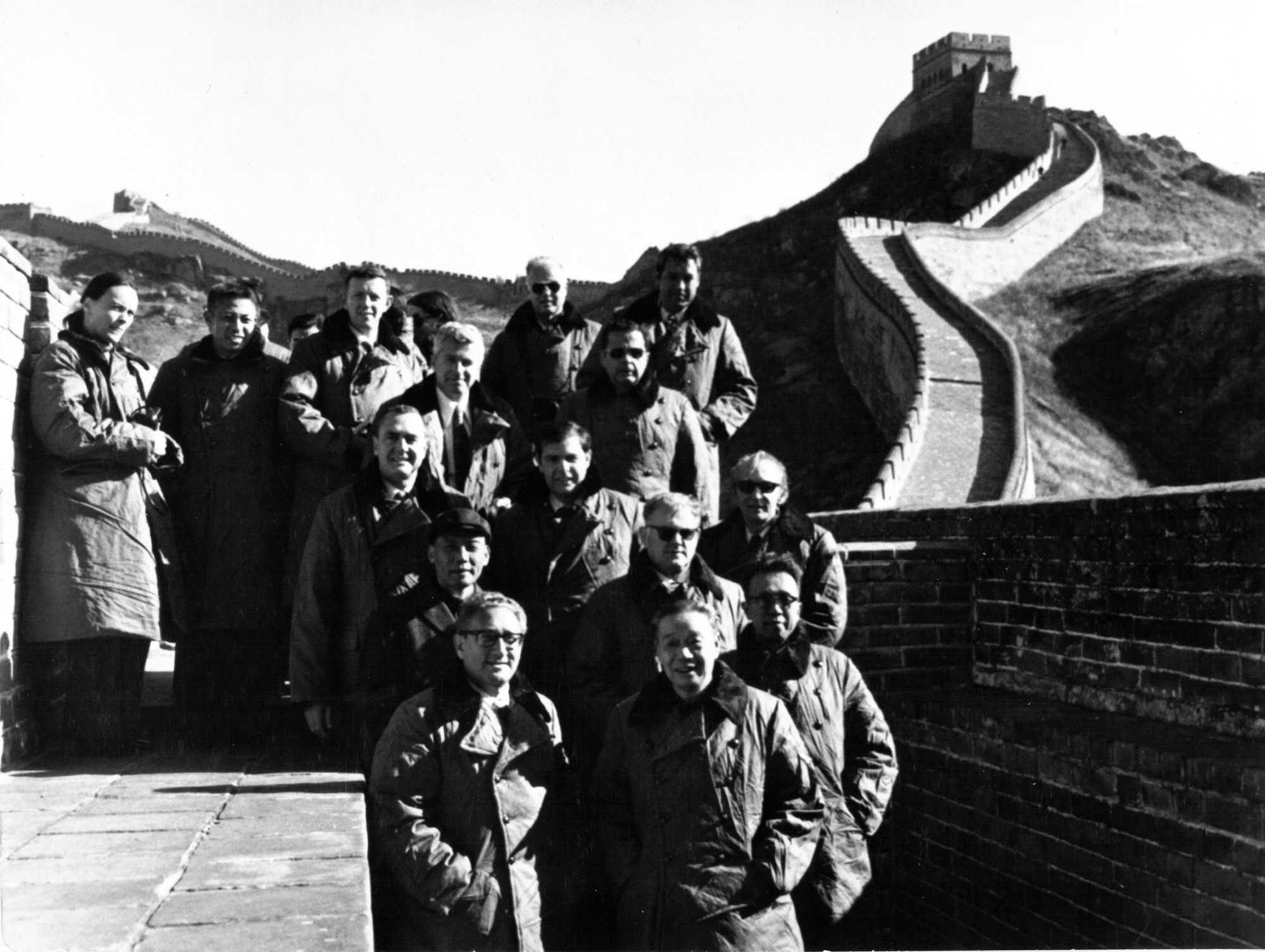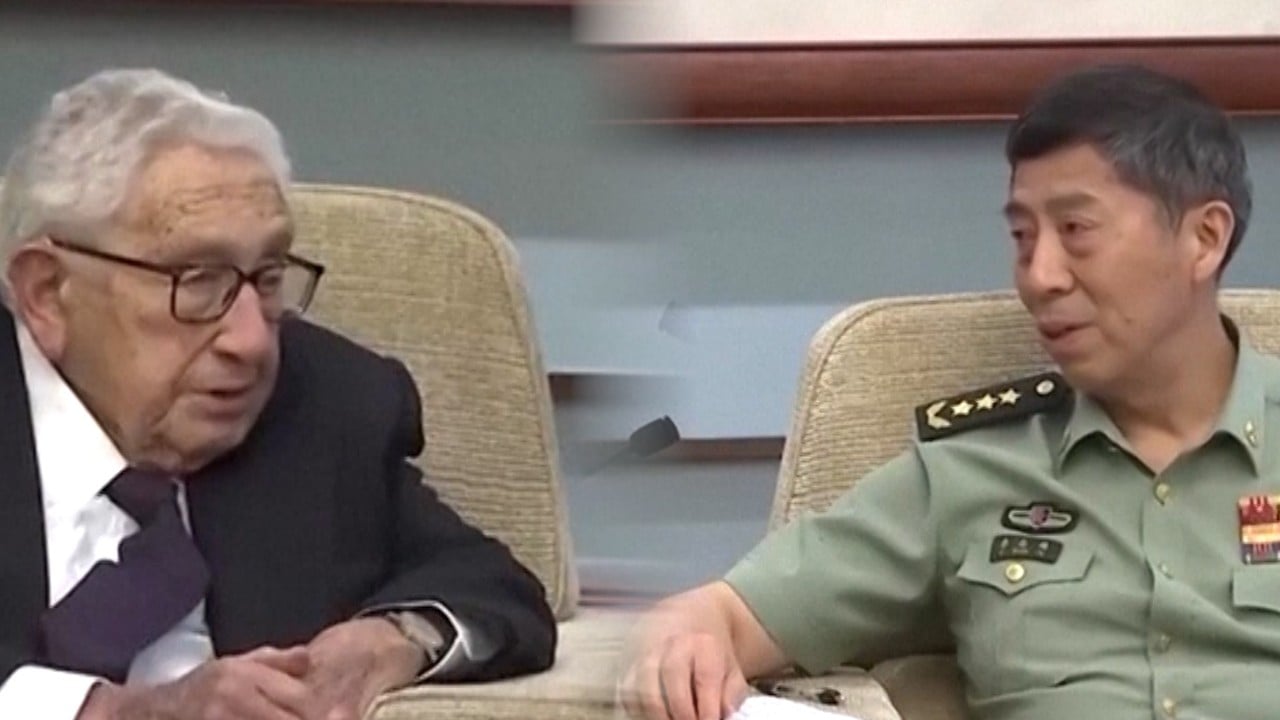
Henry Kissinger: China pays highest tribute as President Xi Jinping sends condolences on passing of ‘old friend’
- Chinese leader sends message to US counterpart Joe Biden, says ‘Kissinger’s name will forever be associated with China-US relations’
- Premier Li Qiang and Foreign Minister Wang Yi also convey condolences, while analysts praise Kissinger’s role in bringing China and US together
“Dr Henry Kissinger was a world-renowned strategist, as well as an old friend and good friend of the Chinese people,” Xinhua’s readout of Xi’s message read.
“He made it his lifelong pursuit to promote the development of China-US relations and enhance the friendship between the two peoples. Kissinger’s name will forever be associated with China-US relations,” he added.
The president also said China stood “ready to work with the United States to carry on the cause of friendship between the Chinese and American people, to promote the healthy and stable development of China-US relations for the benefit of the two peoples, and to make due contributions to world peace and development”.
Charming, controversial Henry Kissinger steered establishment of US-China ties
Kissinger’s role as the executive vice-chairman of the National Committee on US-China Relations “demonstrated his unwavering commitment to fostering understanding and cooperation between the two nations”, said Orlins, who recalled Kissinger’s last public appearance at the committee’s annual gala just five weeks ago.
“He spoke with great courage and wisdom. The audience was mesmerised and you could hear a pin drop,” Orlins said.
Kissinger’s influence extended beyond his public service. His book On China is considered essential reading for those seeking to understand the complexities of China. “We will miss his willingness to share his wisdom with us and his sage advice,” Orlins said.
Robert Daly, director of the Washington-based Wilson Centre Kissinger Institute on China and the US, referred to Henry Kissinger as “one of the last giants”.
He lauded him as “one of the architects of a relationship that changed the world” and commended his pivotal role in uniting “two nations in the midst of a Cold War”.
“Toward the end of his life, [he] warned that the United States and PRC [China] were in the foothills of a new cold war. He was distressed and alarmed by the arc of the relationship and tireless in his efforts to avoid conflict between the superpowers,” Daly said.

“There is now no one who has his credibility in Beijing and Washington – no one who can shuttle between Beijing and Washington, sit with national leaders and command their attention as Dr Kissinger could.”
“History will remember what the centenarian had contributed to China-US relations, and he will always remain alive in the hearts of the Chinese people as a most valued old friend,” he wrote.
In a statement posted by the Richard Nixon Foundation, the former president’s daughters Tricia Nixon Cox and Julie Nixon Eisenhower described Kissinger as “one of America’s most skilled diplomats”.
They said he helped negotiate an end to the war in Vietnam and stood firm with their father’s commitment to free American prisoners of war as well as playing “an important role in the historic opening of China and in advancing detente with the Soviet Union, bold initiatives which initiated the beginning of the end of the Cold War”.
“Henry Kissinger will be long remembered for his many achievements in advancing the cause of peace. But it was his character that we will never forget,” the statement said.
Blinken, America’s top diplomat, also paid tribute to Kissinger, outlining his significant contributions to US history and strategy.
The secretary of state highlighted the unique challenges faced by diplomats, who must make “pivotal decisions when time is short, information is incomplete, and consequences are unknowable”.
He praised the late secretary of state and national security adviser for his “countless history-bending decisions” that he said continued to shape the world today.
“He loved the nation that had taken in his family and, for the rest of his life, felt a duty and a desire to serve America, its people, its idea,” Blinken said.
“Few people were better students of history – and even fewer people did more to shape history – than Henry Kissinger.”

Although a controversial figure in Latin America and Southeast Asia, where he was directly involved in wars and coups d’état, Kissinger was a respected adviser to both major political parties in the United States.
Kissinger was also highly respected by the Chinese leadership, who would receive him with state honours – even after decades away from the White House.
Kissinger was “a trailblazer and icebreaker”, Xi said, extending his “warmest congratulations” for his centenary.
In an early report on Kissinger’s death on Wednesday, Xinhua said that he had visited China more than 100 times.



